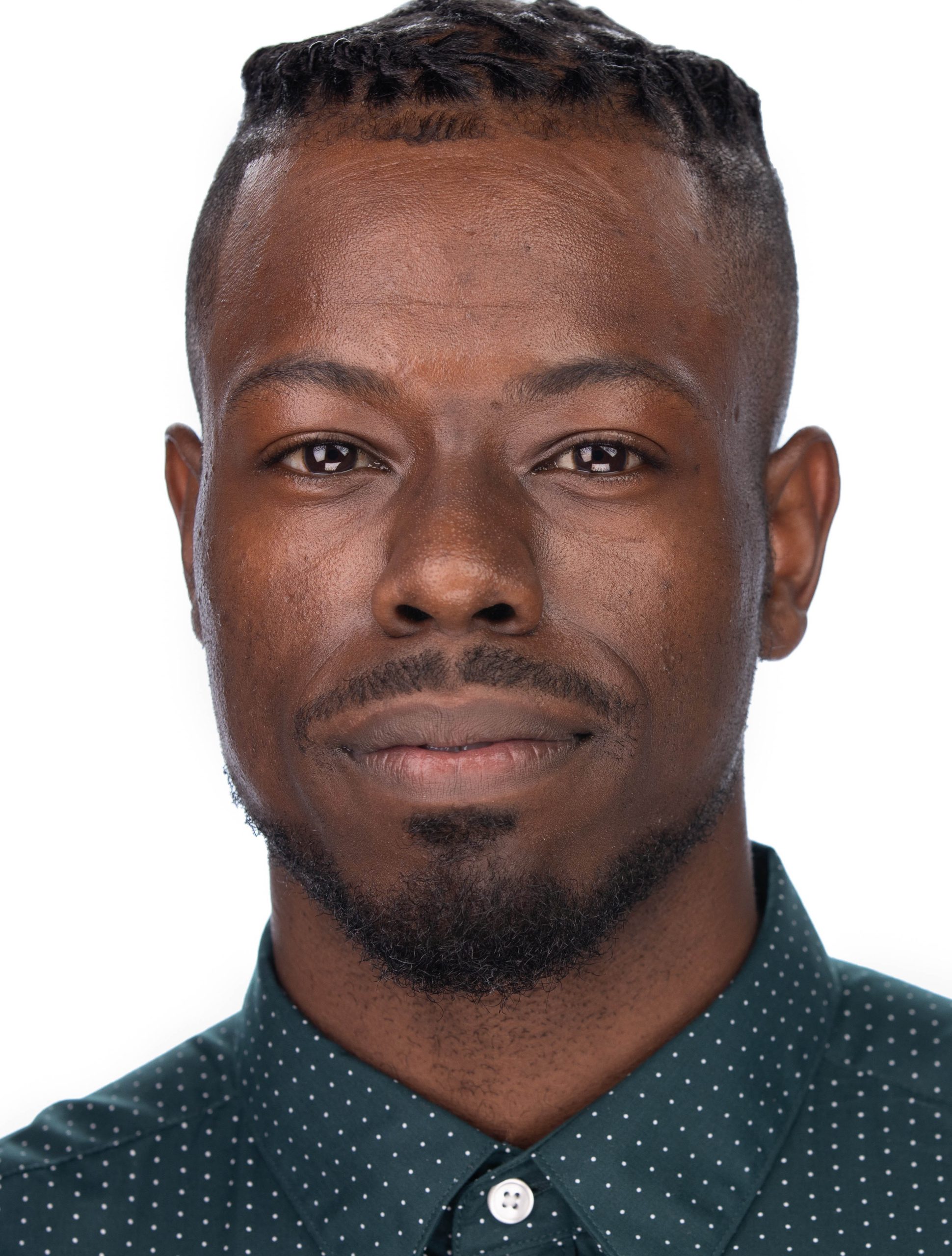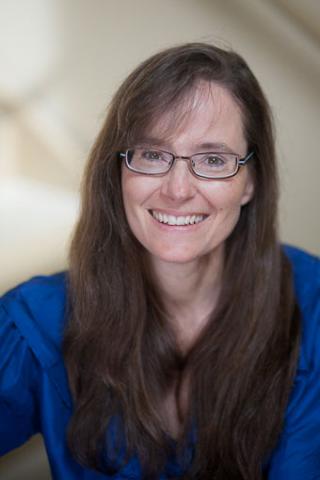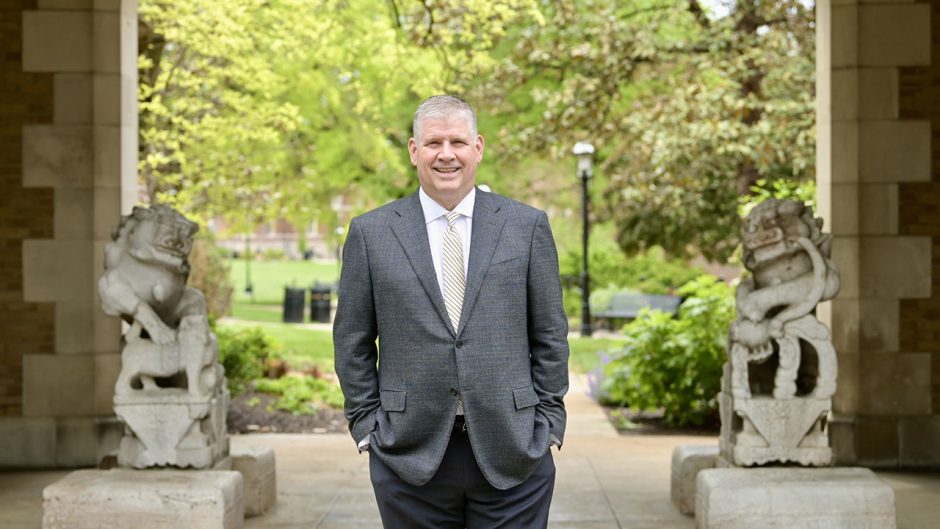June 7, 2022
Contact: Pate McCuien, 573-882-4870, McCuienP@missouri.edu
When Debbie Dougherty, a professor at the University of Missouri, asked her undergraduate Organizational Communication class who wanted to go to graduate school, one student shot his hand into the air.

Marcus Ferguson is a doctoral student at the University of Missouri and is currently employed by Indeed.
“I do!” Marcus Ferguson said. “I want to be you. I want to do what you do.”
Ferguson is a Black man and first-generation college student, and like many marginalized community members, he often felt he couldn’t be himself in predominantly white spaces. In those situations, he felt inclined to be quiet and sometimes even pretended to be someone else. However, he quickly discovered he could be whoever he wanted around Dougherty, or as he likes to call her, Dr. D.
Today, Ferguson is a graduate student at MU, a senior Diversity, Inclusion, and Belonging Partner at Indeed.com, and the author of a recently published article “The Paradox of the Black Professional: Whitewashing Blackness through Professionalism.” He’s come a long way from those days when he felt he couldn’t be himself in a predominantly white setting — and his journey began as an undergraduate with Dougherty in the College of Arts and Sciences at Mizzou.
Throughout the year, Dougherty assigned her students several readings related to communications. One reading struck a chord with Ferguson. He was in the middle of listening to Dougherty’s lecture about an article called the “Paradox in the experiences of professional women” by Julia T. Wood and Charles Conrad, when he recognized similarities to some of his own experiences as a Black man: Professionalism was limiting his ability to be his full Black self in predominantly white environments.
“When Dr. D had us read that piece, I stopped the class to say… this is what Black people go through,” Ferguson said. “Dr. D didn’t shut me down or anything like that. She said, ‘tell me more.’”
That was the start of a long professional allyship between the two and an even longer friendship.
“He was a spark in that class. I really appreciate all of the trust he had to have in me to allow me to help support him through the program.” Dougherty said. “We just have infinite respect for each other.”
After graduating with a Bachelor of Arts in communications, Ferguson found himself facing another dilemma. He had landed a job, but he still didn’t feel the freedom to be himself that he felt with Dougherty. So, three years later, Ferguson called his former professor for advice.
“I reached out to Dr. D during one of my lunch breaks,” Ferguson said. “I told her, ‘I hate this. I hate the way that I’m being treated, and I wish that there was something I could do about it.’ She asked me, ‘Well, why don’t you try grad school?’
Ferguson’s response was one of disbelief: “You really think I could still do that?”
He was accepted into graduate school at MU where he began working on a doctorate in communications. However, Ferguson was still struggling to feel comfortable being himself in a professional setting.
“My first couple days of grad school, I was either dead quiet because I wasn’t trying to interrupt that space or I was trying to be prim and proper,” he said. “That’s not me.”
So, Ferguson had an idea. He set out to further understand navigating in predominantly white spaces and began coauthoring research with Dougherty about the experiences that he and other Black people were having in the workforce.
The two researchers confirmed what Ferguson originally believed all those years ago in class-- the “Paradox in the experiences of professional women'' was similar to the paradox in experiences of Black professionals. They found Black professionals, like women, are often penalized for behaviors or characteristics that don’t fit into professional standards that are historically white and male.
Ferguson and Dougherty interviewed more than 20 self-identified African American or Black professionals from all over the country and learned many of them were experiencing similar issues within the workplace, such as penalizing Black professionals for allowing their hair to grow naturally and feeling pressured to use a “white voice” or code-switching. This limits the potential for professional advancement of Black people and other oppressed groups.
Their findings also show that these types of constraints not only negatively impact the mental health of the oppressed employees, but also combine to contribute to larger systems of oppression, as it can be challenging for Black employees and professionals to progress and build wealth in this environment.
However, the researchers believe that supervisors and managers can help. They suggest in the study that by negotiating what is professionalism within a given organization, they can better address discriminatory policies. Essentially, managers and supervisors should be analyzing what they deem to be professional and thinking about how that might affect the employee.
“Be real about what you’re asking people to do,” Ferguson said. “Question the assumptions that we hold near and dear to our heart but don’t really know why they exist. That person’s hair is not impacting how much code they can put down. That person showing up authentically and being comfortable makes them want to stay here.”
Dougherty added that professionals must be intentional about attacking these barriers.
“To create any change, there needs to be an intentional awareness. That means being present with yourself in the moment,” Dougherty said. “It starts with becoming aware that there’s a problem, but it doesn’t stop there. You have to accept the fact that you aren’t unique. Just because you know there’s a problem doesn’t mean you don’t contribute to it. You have to address it.”
While many of his professors and bosses have questioned their assumptions and preconceived notions in the workplace, Ferguson said what makes Dougherty special is that she goes above and beyond, making other people question their assumptions.
“She really cared, she showed up authentically, and she’s been riding with me.” Ferguson said. “It was huge for me that Dr. D wanted to create a safe space starting with herself. Then she wanted to make the department a safe space for me, and then extend that to Mizzou and academia with my research.”
At the same time, Ferguson said, he really appreciated her allowing him the space to succeed on his own.
“She didn’t want to save me,” he said. “She wanted to kick down doors with me. She just wanted to help me feel like I can succeed the same way anyone else can.”
“The Paradox of the Black Professional: Whitewashing Blackness through Professionalism” was published in Management Communication Quarterly.





